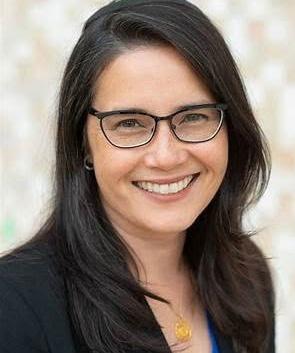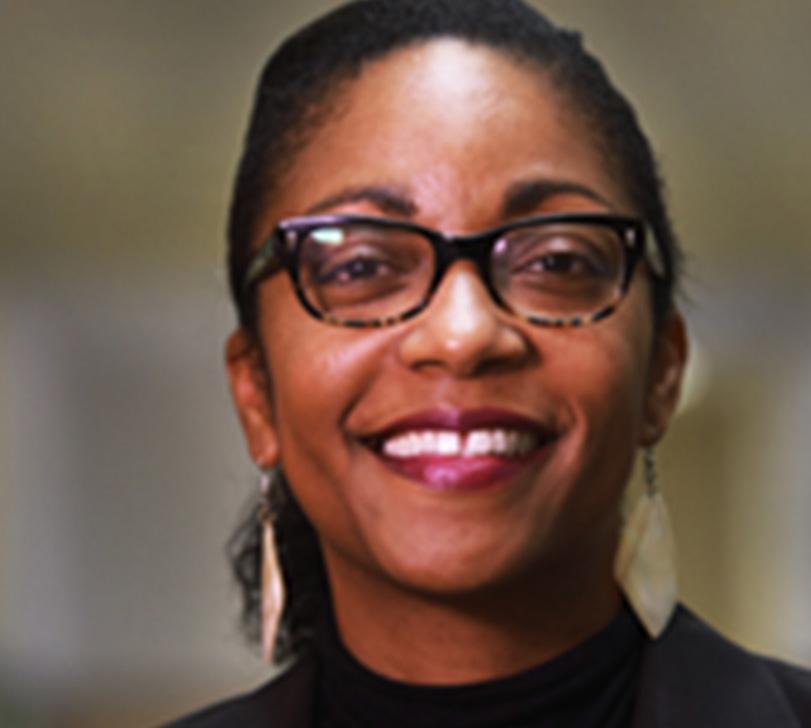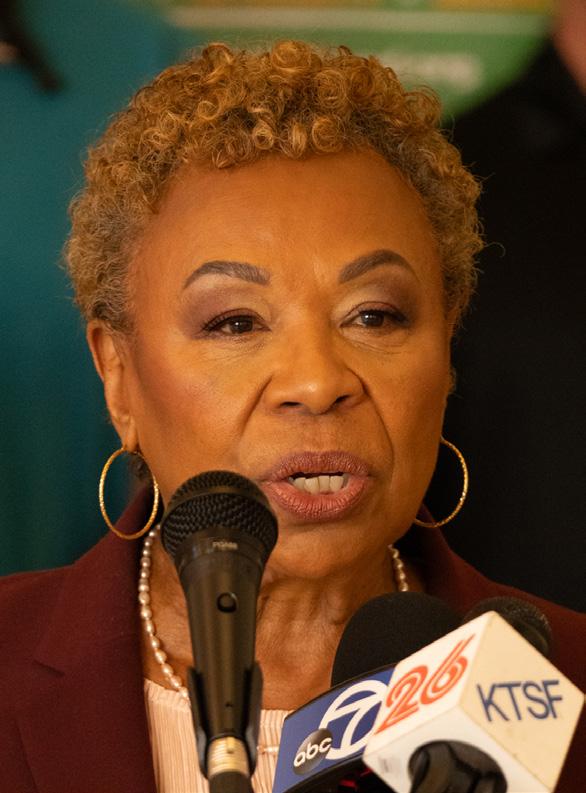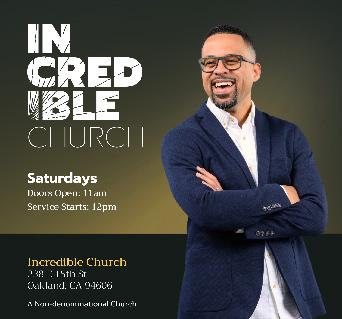











Kathleen’s Story: 15 Years in the Water for Women with Cancer

Special to the Post
Fifteen years ago, Kathleen was looking for a different kind of fundraiser. She had already done marathon walks and wanted something new: something meaningful, but also something that would take her off the pavement. That search led her to the pool.
“I was searching to fundraise for
a worthy cause that would take me off land (no more marathon walks!), and I found WCRC’s Swim A Mile,” she said.
She signed up for Swim A Mile | Move A Mile for Women with Cancer and hasn’t missed a year since.
Organized by the Women’s Cancer Resource Center, the event brings people together each spring to raise funds for free cancer services for women, caregivers, and their families in Alameda and Contra Costa counties. Every participant commits to fundraising before completing a mile in the way that works best for them—swimming, walking in the shallow end, or moving on land.
There are no timers or rankings. The focus is on care, connection, community, and keeping services accessible to anyone who needs them.
Kathleen joined her first year as a solo participant but didn’t stay that way for long. “I created Team SPOON! fifteen years ago, and
Countering Media Reports, OUSD Board Says Superintendent Kyla Johnson-Trammell’s Position is Secure Teachers’ union seeks strike authorization for ‘district failure to meet legal obligations’

By Post Staff

The Board of Education of the Oakland Unified School District has not terminated the contract of Supt. Kyla Johnson-Trammell. Her termination had been previ ously reported by The Post and other news outlets based on a media statement by Boardmember Mike Hutchinson, which may have violated state law and which some in the community are calling misleading or false. In an ABC7 television inter-
Oakland Joins the Protest Against Trump’s Proposed Cuts to Social Security as a Way to Pay for Tax Benefits for Millionaires



Loren Taylor Slightly Ahead in Preliminary Mayoral Election Results
Charlene Wang is ahead for District 2 City Council seat, and Measure A is winning

By Paul Cobb
Following is Part One of our series of “New Oakland” stories. We will continue with our coverage of some athletes, entertainers and prominent persons who are offering hope and solutions for Oakland.
When esteemed actor, author,

producer, director and philanthropist Blair Underwood and his social impact business advisor Gary Reeves took to the streets of Oakland a month ago to learn and speak with local stakeholders about the concerns and needs of Oakland, they were looking to

By Ken Epstein
Loren Taylor is slightly ahead of Barbara Lee in preliminary mayoral election results, according to the first vote count released by the Alameda County Boards of Registrars.
As of Wednesday, April 16, there were 42,000 unprocessed ballots left to count. The registrar has said the results will be updated on Friday, and the final count will be released Friday, April 25.
So far, Taylor has received 23,362 votes (48.22%), while Lee is in second place with 22,142 votes (45.70%).
In the Ranked Choice instant runoff, Taylor is ahead with 51.17% of the vote, while Lee has 48.83% of the vote. In the race for a new District 2 City Councilmember, Charlene Wang is ahead with 3,029 votes (50.45%). Kara MurrayBadal is in second place with 1,570 votes (26.15%)
Harold Lowe is in third place with 784 votes, and Kanitha Matoury is fourth, with 303 votes.
The Measure A tax is passing at press time with a “yes” vote of 29,337 votes (64.24%), and a “no” vote of 16,330 (35.76%).


By Ken Epstein
Legendary Bay area musicians, music critics, and blues and jazz lovers filled Yoshi’s jazz venue in Oakland this week to commemorate the life of Lee Hildebrand, a drummer and deeply respected music journalist, who died Jan. 24 at the age of 78.
The program at the Tuesday event featured musicians championed by Lee including Lavay Smith, Fillmore Slim, Lady Bianca, Curtis Salgado, June Core, Anthony Paule, the Dynamic Miss Faye Carol, Jim Pugh, Mark Hummel, and others.
The event was hosted by Jesse ‘Chuy’ Varela, Hildebrand’s longtime friend and colleague, who works as a radio host on Bay Area jazz station, KCSM FM. All proceeds from the event went to Hildebrand’s family. Hildebrand’s life work was as a freelance writer. Over the years, he wrote and contributed to books and liner notes for albums and covered the music scene for the San Francisco Chronicle Sunday Datebook, the Oakland Tribune, the East Bay Express, and the Oakland Post.
“Lee made a career out of writ-
By Barbara Fluhrer
From humble beginnings in Oakwood, Texas, to picking cotton at 10 years old in Fresno, California, and joining the U.S. Army at age 21, to building a real estate empire, Noble Fields has “kept the faith” and is “keeping it moving.”
At 90, because of her positive attitude and commitment to excellence, she has gained and retained wisdom that she is on a mission to share. She established the Noble Fields School of Real Estate in Oakland and Daly City, now existing for

By Tamara Shiloh
History doesn’t always remember the people who made life easier. It tends to focus on those who made it louder. Richard Bowie Spikes, born in 1878 in San Francisco, didn’t seek notoriety. He wasn’t trying to become a household name. He was simply a man with a curious mind, an eye for detail, and a relentless urge to improve the world around him.
Spikes was the son of former slaves, raised in a country still dealing with the collapse of Reconstruction and heading for Jim Crow. In this climate, Black intellect was too often dismissed or erased. Yet over the course of his life, Spikes quietly secured more than a dozen patents.
If you’ve ever parked a car, poured a cold beer from a tap, or driven an automatic transmission vehicle, you’ve likely touched a piece of Spike’s legacy.
In 1932, he patented an automatic gear-shifting transmission system. At a time when cars were temperamental machines accessible mostly to the privileged, his work laid the foundation for the user-friendly vehicles we rely on today. His system streamlined the gear transition process, contributing to what would become the modern automatic transmission.
However, automobiles were only a part of his contributions
to science, engineering and technology. In 1908, he revolutionized bar service by creating an improved beer tap — allowing bartenders to pour drinks more efficiently and with less waste. The invention was both practical and profitable, enhancing the experience for business owners and customers alike.
As he aged and began to lose his vision, Spikes developed one of his most human-centered inventions: a device to help the blind write. It was not just an incredible invention, it was also a show of ingenuity, a man inventing a tool for a world he could no longer see.
Despite his contributions, he remained largely unknown. Like many Black inventors of his time, he worked with restrictions — often selling his patent rights and receiving little long-term recognition or wealth.
He passed away in 1962, just before the Civil Rights Movement’s most visible phase. He didn’t witness the March on Washington or the passing of the Civil Rights Act. But his life’s work was its own form of protest: persistent creation in the face of systemic erasure.
Let’s remember Spikes not only for what he made, but for how he made it — with vision, despite blindness; with precision, despite barriers; with dignity, despite invisibility.

TJ
By Charlene Muhammad California Black Media Contributor
TJ Simpson is a third-year Recreation, Hospitality, and Parks Management major at California State University, Chico (CSU Chico). A first-generation college student from Southern California, his love for the outdoors stems from his great-grandmother, whose deep appreciation for nature shaped his own. Now based in Long Beach, T.J. is working toward his dream of becoming a park ranger—a goal made more attainable through his participation in #CaliforniansForAll College Corps.
The #CaliforniansForAll College Corps program was created to help college students gain realworld experience, make a meaningful impact in their communities, and reduce student debt. It connects undergraduates with service opportunities that address critical issues across California.
College Corps fellows contribute in key areas such as education, climate action, and food insecurity. They assist K-12 students through tutoring and mentorship, support sustainability and conservation projects, and work with local organizations to combat hunger and improve access to nutritious food.
TJ first learned about College Corps during his freshman year at CSU Chico. Encouraged by his aunt to join as a way to make friends in a new city, he initially
enrolled but later withdrew, feeling he wasn’t ready to “put himself out there.”
However, in 2024, his perspective changed. A series of field school trips to San Francisco exposed him to how College Corps could bridge his academics with hands-on experience in parks and recreation management.
“I realized that rejoining College Corps would supplement my studies and give me real-world experience in my field,” said TJ “It wasn’t just about making friends anymore—it was about building a foundation for my career.”
TJ credits his great-grandmother’s influence for fostering his deep connection to nature. Growing up in San Fernando Valley, she was a former Pathfinder Scout who instilled in him and his brother a love for the outdoors.
While he once considered botany or forestry, TJ found that CSU Chico’s Recreation, Hospitality and Parks Management program was the perfect fit. “Three years in, and I haven’t doubted this major at all!” he said.
One of the most rewarding aspects of College Corps for TJ has been the opportunity to network with professionals in state parks, U.S. Bureau of Land Management sites, and conservation initiatives. Through these connections, he has explored potential career paths while developing crucial leadership skills.
The program has also helped him strengthen essential skills

By Antonio Ray Harvey California Black Media
Assembly Bill (AB) 1269, also known as Wakiesha’s Law, a California bill authored by Assemblymember Isaac G. Bryan (D-Ladera Heights), passed out of the Public Safety Committee on April 8 with a 7-0 vote.
The bill requires county and city jails to notify specific individuals when an incarcerated person is hospitalized for a serious or critical condition — or if he or she dies in custody. AB 1269 was rereferred to the Committee on Appropriations.
“If your loved one died in custody, you have the right to know, and you deserve to know,” Bryan told members of the committee before they voted. “This bill offers families basic decency and respect. That responsibility we should have taken up long ago.”
In March 2016, Wakeisha Wilson, 36, was found unresponsive in her cell while in the custody of the Los Angeles Police Department Metropolitan Detention Center. She was later pronounced dead at the Los Angeles County University of Southern California Medical Center, according to the LAPD.
Wilson’s family said they were not contacted about her death
until a few days later when Wilson’s body had been taken to the morgue at the Los Angeles County Department of Medical Examiner.
On June 15, 2017, the Los Angeles County District Attorney’s Office said in a 24-page document that neither Wilson’s cellmate, the LAPD, nor the nurses and physicians who rendered medical help “are criminally liable for Ms. Wilson’s death.”
“It is the conclusion of this office that the manner of Wakiesha Wilson’s death was a suicide,” the memorandum continued.
Bryan, whose work in the Legislature has been centered on addressing disparities in the criminal justice system, said he authored AB 1269 to hold law enforcement authorities more accountable and to increase transparency in cases like Wilson’s.
During last week’s Assembly Public Safety Committee hearing for AB 1269 at the State Capitol, Wilson’s mother, Lisa Hines, testified. She told committee members that when she went to one of her daughter’s final court appearances, the case was not called. However, she was told that her daughter’s case was on the docket that day.
For the next four days, Hines
Continued on page 7 Continued on page 6




Adult Day Program
Dedicated staff needed to work with individuals with developmental disabilities in communitybased settings, or environments. Qualifications: High school or equivalent. Driver’s license. Dependable and efficient. Background check. Physical exam and TB test. Training available. Decent wages. Please call (510) 690-9570.


was in charge. Williams had to learn what Woods needed on the course, and hew to it firmly.
By Terri Schlichenmeyer
Author: Steve Williams and Evin Priest, c.2025, Wm. Morrow, $30.00, 320 pages
Three hundred thirty-six little pockmarks.
Placed atop a thick sliver of wood, the ball they’re on presents a challenge. Whack that dimpled sphere into 18 holes in the ground, do it in as few swings as possible, and you can ace the game. Do it and, as in the new book, “Together We Roared” by Steve Williams and Evin Priest, you could be a champion of a different stripe.
When the first call came, Steve Williams thought it was a prank. It was a late spring night in
1999 and the voice on the other end of the line identified itself as Tiger Woods. Because Williams had a friend on the golf circuit who did an authentic-sounding Woods impression, Williams hung up the phone.
And the phone rang again. And again. Yes, it was Tiger Woods, who wanted to ask Williams to be his new caddy. Williams said he wanted to think about it.
Caddies, say the authors, are weather analysts, topographers, psychologists, mind-readers, and companions. The luckiest ones become friends with their bosses, which is what happened with Williams and Woods – although the fact always remained that Woods
erts is excerpted from the MacArthur Fellows web site.
A graduate of Yale University with a law degree from Harvard, Dorothy Roberts is a legal scholar and public policy researcher exposing racial inequities embedded within health and social service systems.
Sometimes, that meant getting up at “dark-thirty” to be ready to caddy as the sun rose. It meant knowing when Woods wanted a fan or another golfer to leave him alone – and to get rid of the interrupter quickly. It meant telling Woods which golf club was best, given the situation, and knowing when the time was right to argue with him.
Sine 2012, she has been a professor of Law and Sociology, and on the faculty in the department of Africana Studies at the University of Pennsylvania.
As their working relationship deepened, so did their friendship. Williams enjoyed Woods’ “generosity and loyalty.” In turn, he cared for Woods on the course, giving his best for a dozen years until their partnership ended swiftly with the most explosive controversy.
Roberts’s work encompasses reproductive health, bioethics, and child welfare. She sheds light on systemic inequities, amplifies the voices of those directly affected, and boldly calls for wholesale transformation of existing systems.
After 55-Day Lent, Ethiopian Orthodox Christians Celebrate Easter Morning a Bit Differently
of norms.
Body: Race, Reproduction, and the Meaning of Liberty 1997)”, she analyzes historical and contempo rary policies and practices that de nied agency to Black women and sought to control their childbear ing—from forced procreation dur ing slavery, to coercive steriliza tion and welfare reform—and ad vocates for an expanded under standing of reproductive freedom. examine the treatment of children of color in the U.S. child welfare system.
state intervention and the results of those interventions.
ed with Child Protective Services tions regularly punish the effects
income, and children from these families are much more likely than white children to be removed from

She also shows that blaming marginalized individuals for structural problems, while ignoring the historical roots of economic and social inequality, fails families and communities.
through this act, has nullified the ‘original’ sin committed in the Garden of Eden for all believers. The ‘original sin’ was committed by Adam and Eve when they ate from the forbidden tree.
Roberts argues that the engrained oppressive features of the current system render it beyond repair. She calls for creating an entirely new approach focused on supporting families rather than punishing them.
By Guenet Sebsibe Special to The Post
Here are the first and perhaps most important words you need to know before you even touch “Together We Roared”: know golf.
Roberts’s early work focused on Black women’s reproductive rights and their fight for reproductive justice. In “Killing the Black
Without a basic understanding of the game, the bulk of this memoir might as well be written in Cyrillic. Authors Williams and Priest talk the talk and their stories are thrilling and inspirational, but only if you know your way around a golf course. If you’ve watched a game with even the slightest knowledge of what’s going on, you’ll love the tiny nuggets of insight because it’s apparent that they come from a respectful insider whose aim is not to gossip. But this can’t be underscored enough: just being a Tiger Woods fan won’t be adequate, and you will be thoroughly befuddled more than not. Reading it won’t be the fun you want.
If you’re a fan and a golfer, though, then yeah, this is a book for you.
In their introduction, the authors list common questions that they’re asked, and they promise to candidly answer them here. They do, and you’ll be glad. If you love the game, “Together We Roared” will fit you to a tee.
After nearly two decades of research and advocacy work alongside parents, social workers, family defense lawyers, and organizations, Roberts has concluded that the current child welfare system is in fact a system of family policing with alarmingly unequal practices and outcomes. Her 2001 book, “Shattered Bonds: The Color of Child Welfare,” details the outsized role that race and class play in determining who is subject to
In “Torn Apart: How the Child Welfare System Destroys Black Families—and How Abolition Can Build a Safer World (2022),”
midnight on April 20.
For most Christians in the U.S., Easter comes late this year, but for members of the Ethiopian Orthodox community it’s not unusual — and they will begin celebrating the resurrection of Christ soon after
Roberts traces the historical, cultural, and political forces driving the racial and class imbalance in child welfare interventions.
These include stereotypes about Black parents as negligent, devaluation of Black family bonds, and stigmatization of parenting practices that fall outside a narrow set
Called Fasika or Tensaye in the Ethiopian language of Amharic, Easter is one of the most important events for the Ethiopian Orthodox Church. Its significance is immense and mystical, but it acknowledges that Jesus died on the cross, and
Following the Julian calendar, the cycle of Christian holy days by the Orthodox churches — including Greek and Russian Orthodox — is typically later than the Gregorian calendar established in 1582. The Ethiopian Easter follows the 55-day Great Lent, which includes two weeks of preparation. Called Hudade or Abiy Tsom in Amharic, this year it was from Feb. 24 to April 19.
Her support for dismantling the current system of child welfare is unsettling to some, but her provocation inspires many to think more critically about its poor track record and harmful design.
By uncovering the complex forces underlying social systems and institutions, and uplifting the experiences of people caught up in them, Roberts creates opportunities to imagine and build more equitable and responsive ways to ensure child and family safety.
The Great Lent not only requires one to become a strict vegan, but also to abstain from alcohol, partying, sex, gossip, arguments and most worldly conflicts. More de-





By Morgan Thomas
We are saddened to announce the passing of Mary Wainwright, who died peacefully on April 2, 2025, in Kensington, California. Born on June 19, 1930, in Marvell, Arkansas, to Coli and Hezzie Carr, she moved to California in 1951.
Continued from page 2
like adaptability and problemsolving. As someone who is neurodivergent, TJ appreciates predictability and structure, but his service work has required him to embrace flexibility.
“For example, transportation has been a challenge since I rely on public transit and carpools to reach host sites,” he said. “But I’ve learned to be patient and develop creative solutions to overcome obstacles.”
His dedication and work ethic have earned the trust of College Corps directors, leading to leadership opportunities—including serving as a program ambassador.
“My directors have recognized my passion and ability to connect with others,” TJ said. “They’ve given me opportunities to help
Mary began teaching in Berkeley Unified School District’s Head Start program in 1968 and earned degrees in Education and Child Development from Cal State Hayward and Sonoma State colleges. Her teaching career spanned more
prepare for trips, coordinate with other Fellows, and take on responsibilities that have helped me grow as a leader.”
T.J. has grown from a onceshy student into a confident leader within College Corps. But beyond his personal growth, he recognizes the importance of representation in the outdoor and environmental fields.
As a Black student in a predominantly white field, TJ rarely saw people who looked like him in nature-based organizations like the Boy Scouts or outdoor youth programs. This lack of representation often made him feel like he didn’t belong.
“Being a Black Corps fellow gives me the strength to share my passion with those around me, one job at a time,” TJ said. He hopes to be a role model for other Black students and individuals interested in climate-related careers.
College Corps, in partnership with more than 40 colleges and
than 20 years.
Encouraged by community leaders, she was elected to the Berkeley City Council, serving two terms from 1988 to 1996.
A fierce advocate for education, equity, and opportunity, Mary was a lifelong supporter of the NAACP. She also served with Berkeley Youth Alternatives, the Juneteenth Festival, League of Women Voters, and the Berkeley Democratic Club.
A devoted trustee of Star Bethel Missionary Baptist Church, her faith and leadership left a lasting impact.
Quiet Hour will be at Sunset View Cemetery on April 17 from 1:30-5:30 p.m. at 101 Colusa Ave., El Cerrito, CA 94530.
A Celebration of Life will be held at Star Bethel Missionary Baptist Church on April 18, from 10:30-12:30 p.m. at 5800 San Pablo Ave., Oakland, CA 94608.
universities, provides undergraduate students with access to training, networking, and professional development opportunities.
Participants benefit from hands-on experience in high-impact service fields, financial assistance—earning up to $10,000 for completing 450 hours of service—and professional growth through developing skills in communication, teamwork, and leadership.
Through College Corps, TJ has found purpose, leadership, and a path to a fulfilling career. With his dedication, resilience, and passion for conservation, he is well on his way to making a lasting impact in parks management and environmental advocacy.
For more information about #CaliforniansforAll College Corps visit www. cacollegecorps.com


By Clifford L. Williams
“Everyone ages” …as noted by BlackDoctor.org (BD). The longer you live on Earth, the more you will notice how things change – including your body and mind.
Aging is a natural process of our lives, according to BD. As we age, we experience gradual changes to our brains and bodies. Some of these changes affect our physical and mental abilities and may increase our risk of disease.
Each one of us experiences aging differently. The extent of how we experience changes due to aging, and the point in our lives when they start becoming more noticeable, varies from person to person.
As we grow older, it’s natural to feel concern about changes in our mental abilities. We want to carry out our daily routines, be self-sufficient and relive the most treasured moments of our lives – without having to worry about our memory and dementia.
According to the World Health Organization (WHO) almost 40% of us
will experience some form of memory loss after we turn 65 years old.
But even if we experience memory loss, chances are still unlikely that we have dementia. For the most part, our memory loss is mild enough that we can still live our day-to-day lives without interruption.
The WHO estimates that, after we turn 60 years old, 5% to 8% of us will live with dementia at some point. With dementia, symptoms including memory loss gradually worsen to the point where our abilities seriously deteriorate, and we are no longer able to take care of ourselves.
But dementia and Alzheimer’s are not the same. Dementia is a collection of symptoms, while Alzheimer’s is disease of the brain. It is the top neurodegenerative disorder in the world. The Centers for Disease Control and Prevention (CDC) estimates that 5.8 million Americans live with Alzheimer’s in the United States.
Early Signs of Alzheimer’s to Look
Out For:
Difficulty finding words, vision or spatial issues, and impaired judgment or reasoning
• Stuttering or halting speech, difficulty recalling words, or using substitutes for words
• Difficulty paying bills, cooking, or following a recipe
• Losing track of dates, getting lost in a familiar place, or having trouble understanding an event that’s happening later
• Becoming more easily upset, feeling depressed, scared, or anxious, or being suspicious of people
• Scaling back on projects at work, becoming less involved with hobbies, or lacking motivation
When it comes to enhancing our memory and cognitive abilities, engaging in brain games is an effective and enjoyable approach. Not only do these games provide entertainment, but they also stimulate various areas of the brain, leading to improved memory.
According to HealthDay News, a new drug to treat Alzheimer’s disease has been approved by the U.S. Food and Drug Administration. In clinical trials, donanemab (Kisunla), modestly slowed the decline in thinking among patients in the early stages of the disease.
With a diagnosis of dementia and seeking information about that illness, it can be both overwhelming and emotional. If you or a loved one has been diagnosed early, there is hope. You can plan for your care before your symptoms accelerate.
To Our Readers:
For information on other healthrelated issues regarding men’s health, please share your thoughts and/or concerns with the Post Newspaper Group editorial staff.
Asm. Isaac Bryan’s ‘Wakiesha’s Law’ ... Continued from page 2
said she made every attempt to find the whereabouts of her daughter by calling different jails. On the fourth day, she was given a number to call the coroner’s office.
“It was the longest four days of my life,” Hines said.
“At least they can do is the bare minimum, call the next of kin within 24 hours,” said a tearyeyed Hines. “I ask you guys to
pass this bill because no parent should have to find out their child is deceased when she is in custody of the police.”
Assemblymembers Juan Alanis (R-Merced), Mark González (D-Los Angeles), Matt Haney (D-San Francisco), John Harabedian (D-Sierra Madre), James C. Ramos (D-San Bernardino), and California Legislative Black Caucus (CLBC) member Sharp-Collins (D-San Diego) all voted in favor of the bill.
Assemblymember Nick Schul-
tz (D-Burbank), co-sponsor of AB 1269 and the chair of the Public Safety Committee, also voted to approve the legislation.
Assemblymembers Tom Lackey (R-Antelope) and Stephanie Nguyen (D-Elk Grove) abstained from voting.
“I wish there was something I could do to make it better,” Schultz told Hines. “You will have my recommendation of an ‘aye’ vote. I thank you for your bravery and courage to testify.”
Joy on Easter Morning for Ethiopian Orthodox Christians ... Continued from page 4
ministry. Hence, Ethiopian Orthodox Christians accompany Jesus on his journey and ordeal- by mirroring his fasting and solemnity.
The Temptation of Christ in the desert and his crucifixion are two distinct but related events in the life of Jesus, as depicted in the New Testament. However, the Ethiopian Orthodox religion honors these events together.

MONDAY, APRIL 21
TUESDAY, APRIL
WEDNESDAY, APRIL
THURSDAY,

vout believers will not eat or drink at all until noon every day of Lent. Exceptions about food and water are made for pregnant women and the sick. The faithful are required to remain focused on connecting with one’s inner divinity and think of Jesus fasting in the desert. Through spending more time than usual in prayer and meditation on the Holy Scripture, the believer repents internally for mistakes made in life and re-connects with the grace of God.
In the Bible, Jesus got baptized in the Jordan River by John the Baptist then went into the Judaean Desert to pray. While in the desert, Jesus fasted for 40 days and nights and was in a spiritual battle with Satan. Satan appeared in various forms to tempt him with various offers to break his fast and follow him. Jesus refused each temptation and returned to Galilee to begin his
During the final week of Lent, on Prayer Thursday and Good Friday, churches hold services filled with deep prayers, chanting and reflection. This is followed by an allnight vigil on Holy Saturday, where worshippers gather in churches, holding candles as they await the arrival of Easter Sunday.
The moment of celebration arrives after midnight when the faithful rejoice in the resurrection of Jesus Christ. Families come together to break their long fast with a grand feast of traditional Ethiopian dishes that have been lovingly prepared. The meal often includes doro wat (a richly spiced chicken stew), injera (the signature sourdough flat-
bread), and tibs (sautéed meat), accompanied by tej (honey wine) and freshly brewed Ethiopian coffee. The atmosphere is filled with family, laughter, smells of food and especially frankincense smoke. This heartfelt gathering makes Fasika a truly remarkable and unforgettable experience.
Fasika is marked by a profound sense of faith, with ceremonies and rituals that date back for centuries. This holiday differs from most of western Christianity in that the focus is less on repentance and more on an attempt to recapture humanity’s original state of purity.
The significance of Fasika additionally underscores many deep themes, such as humanity’s reconciliation with God and extreme gratitude for the sacrifice that Jesus made to offer Orthodox Christians hopes for eternal life. For all of mankind, it’s also a time of renewal and new beginnings, both spiritually and personally.
So, we say ‘Melkam Tensaye’ or ‘Melkam Fasika’! — which means Happy Easter in Amharic.

The Peralta Community College District (PCCD) is requesting the submittal of qualifications/ proposals from qualified firms to provide Support Services for Project Planning & Submittal Services to the State Chancellor’s Office (RQF-P No. 24 25/10). Qualificatoins-Proposals are to be delivered to the PCCD Purchasing Department, electronically (via Plaent Bids) District Current Solicitations | Planet Bids, by 2pm, by April 30, 2025.
The Peralta Community College District is seeking well qualified firms to provide Support Services for Project Planning & Submittal Services to the State Chancellor’s Office. No preproposal conference will be held.
Copies of the project documents may be obtained by clicking on the following link: District Current Solicitations | Planet Bids Purchasing Department, 333 8th Street, Oakland, California, 94606, Phone (510) 466-7225.
Governing Codes:
GC 53068
EC 81641




Special to the Post
Rabbi Mates-Muchin, Ken Maxey of the Bay Area Urban League, and Temple Sinai Social Action sponsored the Seventh Annual Unity Passover Seder on March 29 at Temple Sinai.
Both agreed that “in the midst
of these challenging and divisive times, more than ever, the need to come together and celebrate the ongoing quest for freedom from oppression has never been greater.”
Rabbi Mates-Muchin stated that the Unity Seder was “to honor the many traditions that make
Continued from page 1
ing and documenting the Black music experience in the East Bay,” said Larry Kelp, former long-time music critic for the Oakland Tribune and host of the KPFA live radio show, “Sing Out,” as reported by the S.F. Chronicle.
Hildebrand died at the home of his caregiver, who lived next door to him in Modesto, according to his daughter, Leeza Hildebrand. The cause of death was ischemic cardiovascular disease.
Writing liner notes for albums, he “was able to put artists such as Albert King, Little Milton, Jimmy Witherspoon, the Emotions, or the Soul Stirrers with Sam Cooke into historical perspective for new listeners,” according to the Chronicle.
Born Jan. 26, 1946, in Williamsport, Pennsylvania, he moved to Mountain View on the Peninsula, where he graduated from Los Altos High School in1964. He was drafted into the army in 1968, serving as a medic. He spent eight months in Vietnam.
Speaking at Yoshi’s Tuesday evening, Leeza Hildebrand thanked the blues and jazz community for coming out to celebrate her father’s legacy and for contributing to support his family.
“It’s really hard for me to be up here, without breaking down and crying, but I want to celebrate the life of my dad and to keep his memory alive,” she said.
“My dad, Lee, was an amazing music journalist and historian with an incredible amount of knowledge. And you guys knew him as those things, and as a cool guy that knew just about everything when it came to the jazz, Blues, and R&B music scene. But I knew him as so much more than that,” she continued.
“I knew him as my amazing father, and my 9-year-old twins knew him as their loving grandfather,” she said. “He taught me so much, including how to build sandcastles and how to write superior essays when I was in school. His passion and love for music had a huge impact on my life.”
Blair Underwood Means Business ...
Continued from page 1
increase the amount of time and financial resources for underresourced organizations over the last two decades.
Reeves is a local resident and former spiritual advisor of the Golden State Warriors and Blair Underwood has family in and a passion for the Bay Area. Since they started their journey, they have quietly contributed to foster youth, AIDS Health Care Foundation, affordable housing, vocational education, and fundraising.
Most recently, they have rallied support from third-party funding sources and corporations to join their efforts in uplifting the community of Oakland. Underwood joined the ownership group of the Oakland Ballers last week, becoming their “Social Impact Ambassador.”
As the team’s ambassador of social impact, his first call to order was promoting an opportunity for the community to have an ownership stake in the team for $510. The $510 symbolizes the city’s area code 510. In addition, Underwood has launched a successful BU Tiny Home vocational program to assist students and young adults in qualifying for certification to work in the construction industry.
The BU Tiny Home program is completing its beta test now to provide housing for those emancipating out of the homeless populations. Anthony Altman said that programs like this help many
people in his position find purpose and self-worth. “I worked hard under caring leadership to complete my curriculum to become certified. Now I can market myself with confidence with the support of NFCAP (National Flooring Contractors Apprenticeship Program) and Mr. Underwood.”
This feeds right into the Oakland Ballers’ investment in West Oakland’s blighted area, which was recently considered Northern California’s largest homeless encampment. Today, the team’s investment has revitalized the area to be a positive hub for family entertainment and a great culinary experience at Raimondi Park, through sports.
Underwood can be seen on the television screens again this year as the new face of Lexus, which will assist in Underwood’s efforts to support Oakland. Hopefully, Underwood’s passion to act on his goals, rather than to just talk about them, can stimulate excitement and action from some of our other notables from Oakland. Underwood is still setting a standard for how you acknowledge your purpose through your blessings.
Underwood, like many others associated with our city, includes Warriors player Steph Curry, who donates millions of dollars to our schools; Terry Ellis of En Vogue; former Warriors Champions Clifford Ray, Charles Dudley, and Rick Barry are also giving back.
Oakland such a dynamic and diverse community.”
The Unity Seder honored the key components of a traditional Seder while reading from many different traditions to learn from each others’ stories.
A hot meal was served, and the ritual foods of the Seder plate were shared.
“We must get back to what got us here. We must continue the American dream and replicate what Dr. Martin Luther King civil rights faith leaders did to get us this far.
The 10th Unity Seder at Temple Sinai represents the opportunity for us to hear and see each other.
Continued from page 1
view last week, School Board President Jennifer Brouhard said she is not legally allowed to discuss personnel matters in public, but that the board has not voted to change the superintendent’s contract in any way.
“Her current contract is in place,” said Brouhard. She said that if there was a vote, “(the board) would have to announce it (to the public) after closed session,” as required by law.
Asked whether the superintendent’s contract was discussed during the closed session meeting, Brouhard said, “There’s always discussion around the board and superintendent’s relationship. Any time, we could be in the middle of discussing anything. (But then) you follow through on that discussion.”
In a statement on Facebook endorsed by a school board majority, Brouhard said:
“Like all of my board colleagues, I have tremendous respect for Dr. Johnson-Trammell’s contributions and accomplishments during her … years as superintendent. Under her leadership, we will finally exit state receivership — a milestone that cannot be overstated … I have always respected her vision and leadership.”
Continuing, Brouhard said, “In August 2024, the board approved a contract that outlines a transition: Dr. Johnson-Trammell will step down as superintendent on Sept. 1, 2025. However, under that contract, she will continue to support the district in special projects as directed by the board.’
“This is not about removal — it is about a thoughtful transition. The process to find a permanent superintendent must allow time for the board to conduct a full, open, and transparent search for the next permanent superintendent,” she said.
Contradicting the school board’s official statement, Hutchinson said in an ABC7 interview, “Unfortunately, our directors, a majority of the board, voted to start an immediate search for a new superintendent to begin July 1 and to begin negotiations for a payout for our current superintendent’s contract, effectively forcing her out at the end of June.”
According to Channel 7, “Hutchinson says he knows discussing this may be a violation of the Brown Act, which is a misdemeanor, but he says he’s putting the community first.”
It is unclear whether Hutchinson’ statement could put the dis-
trict in danger of a lawsuit.
The future of Johnson-Trammell’s service comes in the context of OUSD’s $95 million budget deficit and the threat of school closings and employee layoffs, as well as contract negotiations with the Oakland Education Association (OEA), the teachers’ union.
One major issue the district faces is the superintendent’s extremely high salary, which was negotiated less than a year ago under the leadership of Hutchinson and former Boardmember Sam Davis.
Johnson-Trammell is one of the highest paid superintendents in California and the country, earning a total compensation package of $637,036.42 a year, considerably above what superintendents earn in the San Diego County area, which, at $470,000 has the highest average superintendent salaries in the state.
The superintendent’s current contract granted her a pay raise and a final three-year contract extension through the 2027 school year.
Another issue is that under her contract, she would only work as superintendent during the current school year, and then for two additional years she would work on research projects and prepare the district for a new superintendent – at the same rate of pay she now earns plus raises.
During those two years, a temporary superintendent would be hired to handle the responsibilities of running the school district.
Meanwhile, labor conflicts continue to impact the district.
The teachers’ union (OEA) this week initiated a strike authorization vote for its members “in response to the District’s failure to meet its legal obligations to provide timely and transparent information regarding district finances,” according to an OEA press release.
“Oakland educators’ priorities are the students and families we serve every day. For over a year, OEA has made consistent efforts to work in good faith with District leadership to obtain information that is essential to ensure stability in our schools and is legally required for collective bargaining,” said OEA President Kampala Taiz-Rancifer.
“OUSD’s persistent failure to meet its obligations under the law has forced OEA to initiate a strike authorization vote. OEA is committed to averting a strike, and we call on the District to act in good faith.”
during the Passover period,” said
Kenneth E. Maxey II, President & CEO Urban League of Greater San Francisco Bay Area.
Rabbi Jacqueline MatesMuchin said, “Especially now, when our society is becoming more and more polarized, it is crucial that people who share the values of compassion, justice and peace come together to connect and strengthen relationships. None of us are alone in this struggle for a better world. We must seek to understand one another and work together.” For additional information: contact SinaiSocialAction(@oaklandsinai.org.
Fifteen Years in the Water for Women With Cancer ...
Continued from page 1
while members can’t always join the Swim (so sometimes I participate solo), they are always there in spirit!”
She expected to show up, raise money, and go home. Instead, she found herself part of something more lasting. “I had no idea how amazing my connection to WCRC would be. I thought it would just be an annual fundraiser, and it has turned into so much more. So many cherished relationships and experiences!”
Kathleen swims in memory of loved ones she’s lost and in support of those still living with cancer.
“Participation honors those I’ve loved but lost to cancer and those who have survived beyond their diagnosis.”
The water feels like a natural place to return to year after year.
“In the water is where I am most comfortable. Sure working out for fitness is important, but swimming for me is home.”
It’s not just the swimming that keeps her coming back. It’s the trust she has in the organization behind the event.
“I am always eager to support WCRC because of their excellent programs, fiscal responsibility, dedication to equitable care and services, and all-around wonderful staff!”
Based in Berkeley, the Women’s Cancer Resource Center provides free therapy, support groups, wellness classes, and practical support to help women facing the challenges of cancer—especially those who experience barriers to care.
When asked to describe the Swim weekend in a single word, Kathleen chose, “Extrastupendousness!”
She encourages anyone thinking about joining to go for it—no matter their experience level in the water. “You’re gonna have such a great time! You don’t have to be an excellent swimmer. Floaties, fins, even walking are welcome!”
This year, Kathleen plans to return for the 30th annual Swim A Mile | Move A Mile for Women with Cancer, happening May 3–4, 2025, at Northeastern University in Oakland (formerly Mills College). To learn more or register, visit www.wcrc.org/swim.
PART 2
Oakland’s most vulnerable neighborhoods are struggling to eat and stay healthy. These are the contributing factors.
By Magaly Muñoz
Unfortunately, healthy food is becoming increasingly difficult for Oakland residents to access. Over the last five months, The Oakland Post heard from more than 50 residents about their struggles finding and affording healthy food. We visited food banks, talked with people at markets and food distribution events, and distributed an online survey.
We learned that residents are traveling to nearby cities to get cheaper groceries, financial assistance programs like CalFresh are difficult to navigate, wages are low, and food is getting more expensive while the quality appears to be dropping.
Andres, who asked us not to use his last name due to his undocumented status, said he often relies on food distribution from organizations like the Street Level Health Project for his weekly groceries.
He wouldn’t be able to eat complete meals otherwise, due to the lack of consistent employment at his car washing job during the winter months.
With eight people living under one roof and only three adults contributing to the household income, he said things are tight.
“During these months, we’re always backed up on paying our bills, including rent, and we’re trying to do more with what little that we have, which is not much,” Andres said.
Andres’ biggest complaint about grocery shopping is the lack of fresh and healthy food that is affordable and good quality. He’s been to food banks and grocery stores where the produce rots within a day or two of receiving it, forcing him to buy fast food in order to feed his family. Down the street at the Unity Council’s weekly grocery distribution, Mayra Segovia, a single woman in her 50s, said she visits this location almost every week to get food. Her fixed income on Social Security makes it difficult to afford her basic necessities.
Segovia said she receives CalFresh funding to pay for her groceries, but the almost $300 assistance is not enough to get her through the month, so she gets creative. She often does favors for local vendors in exchange for meals. Even with the Social Security checks of a little over $1,000 a month and other resources like subsidized housing, the cost of living is going up. She’s blaming the government for their contribution to the problem.
“We’re not all rich like Donald Trump and all those corrupt politicians, we don’t have that much money like that,” Segovia said.
Social service assistance is falling short
Several people we spoke with said financial food assistance like CalFresh isn’t supplementing the gaps in their budgets.
Neemeka Tucker, mom of two elementary-aged kids, said she receives $123 a month from CalFresh, yet she’s spending almost $600 on groceries at the store.